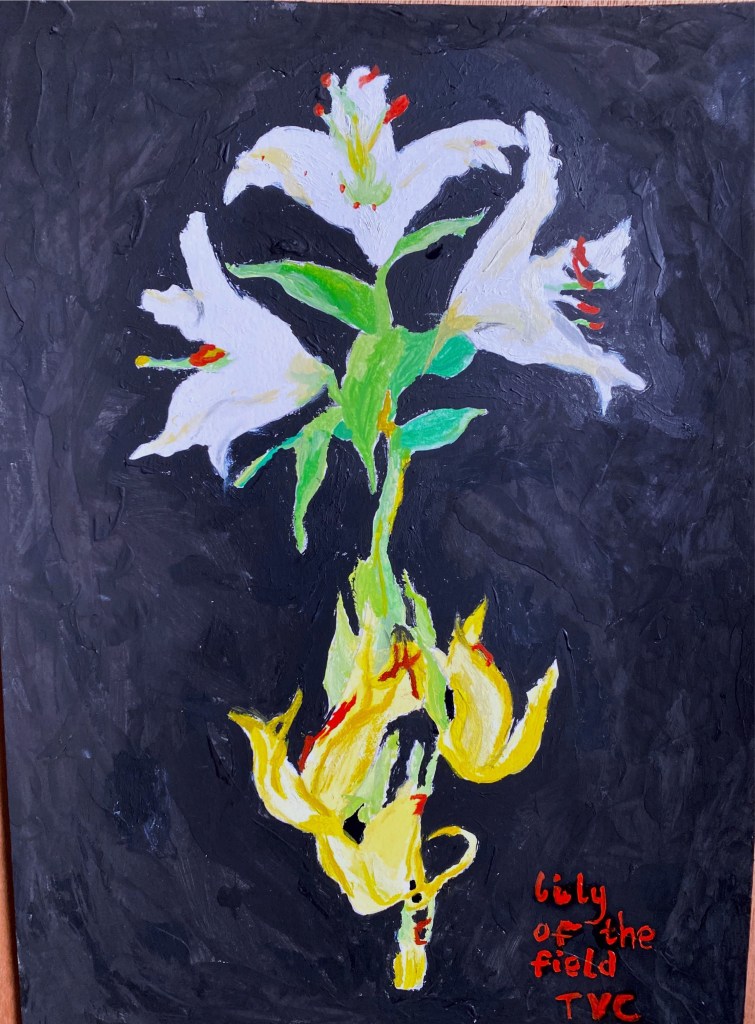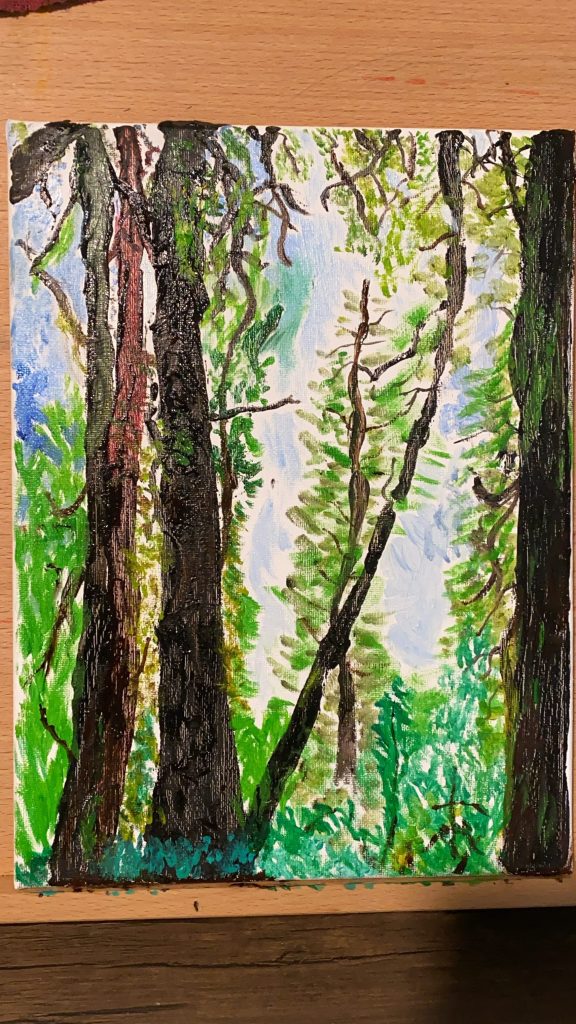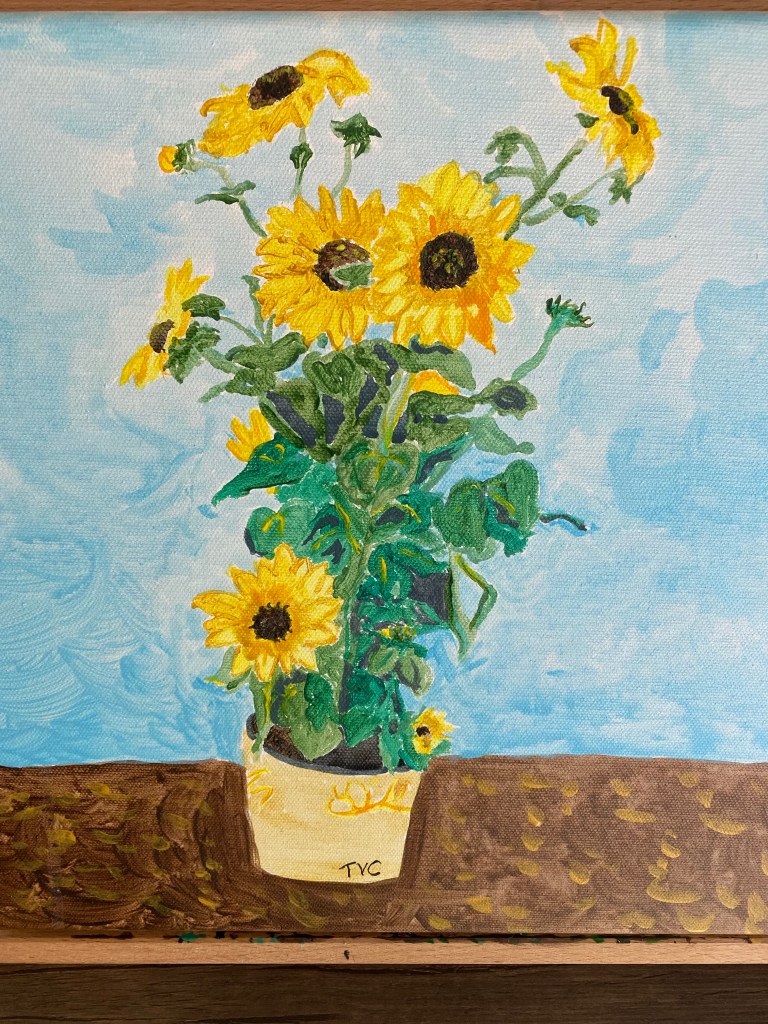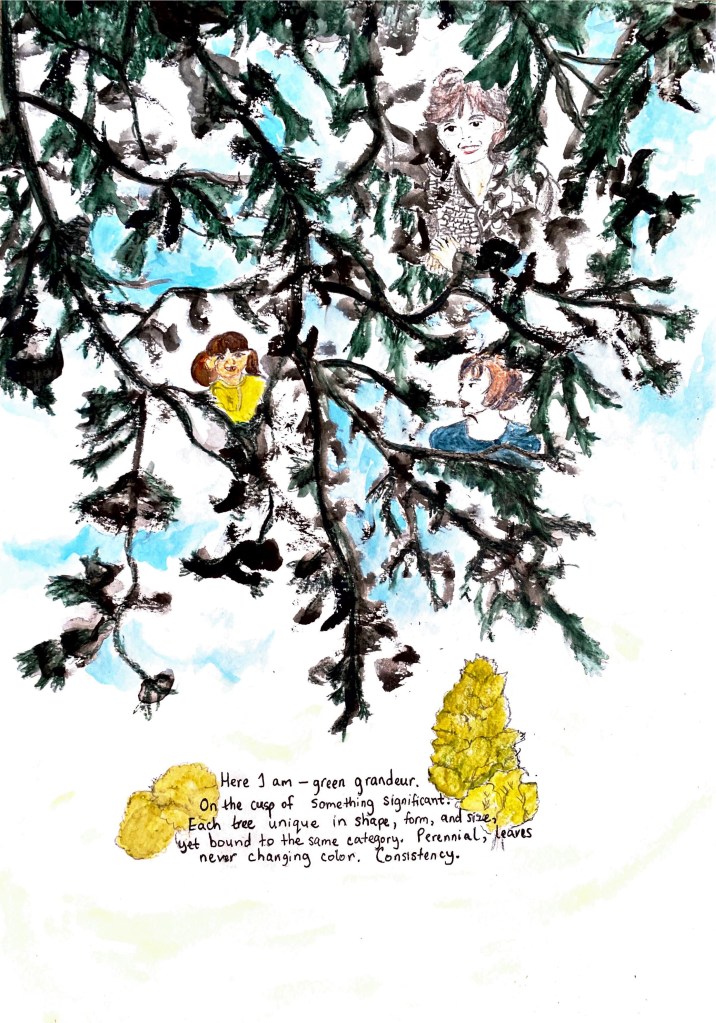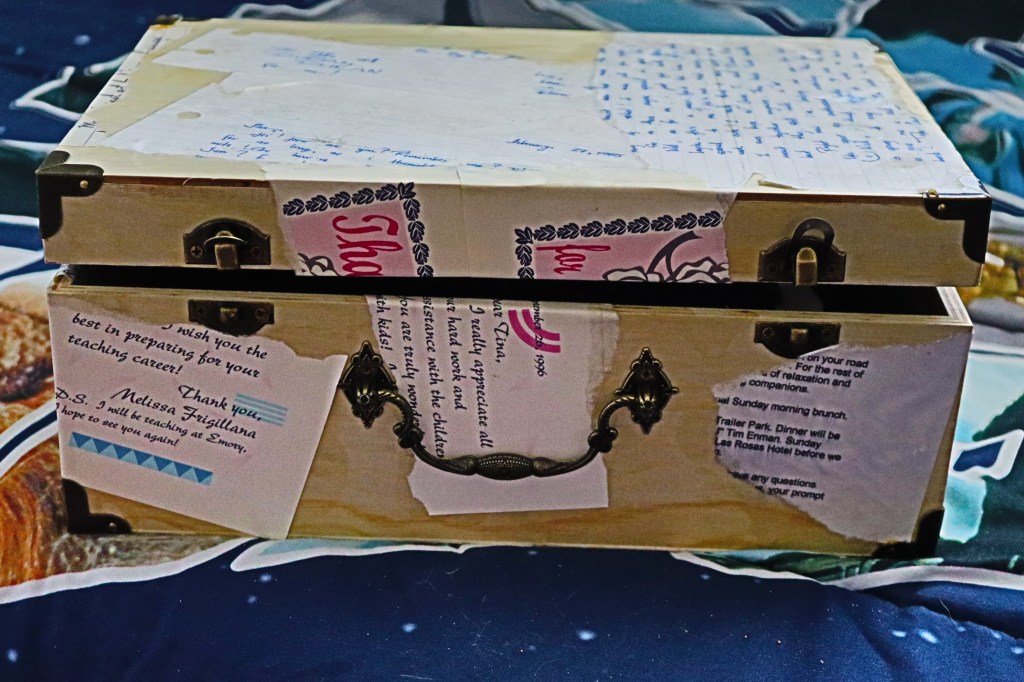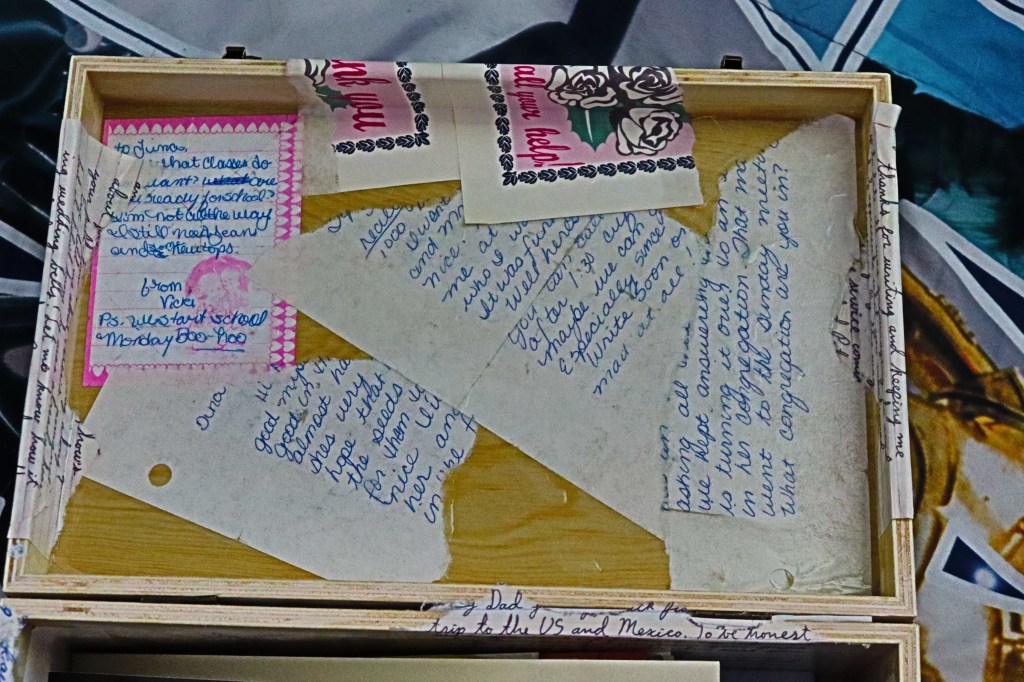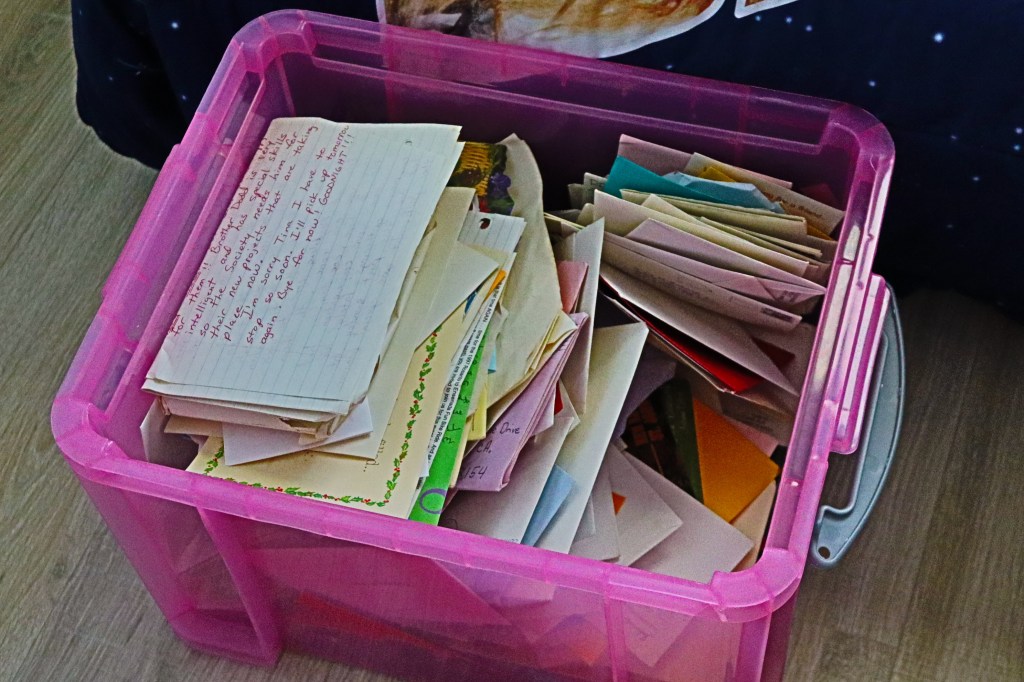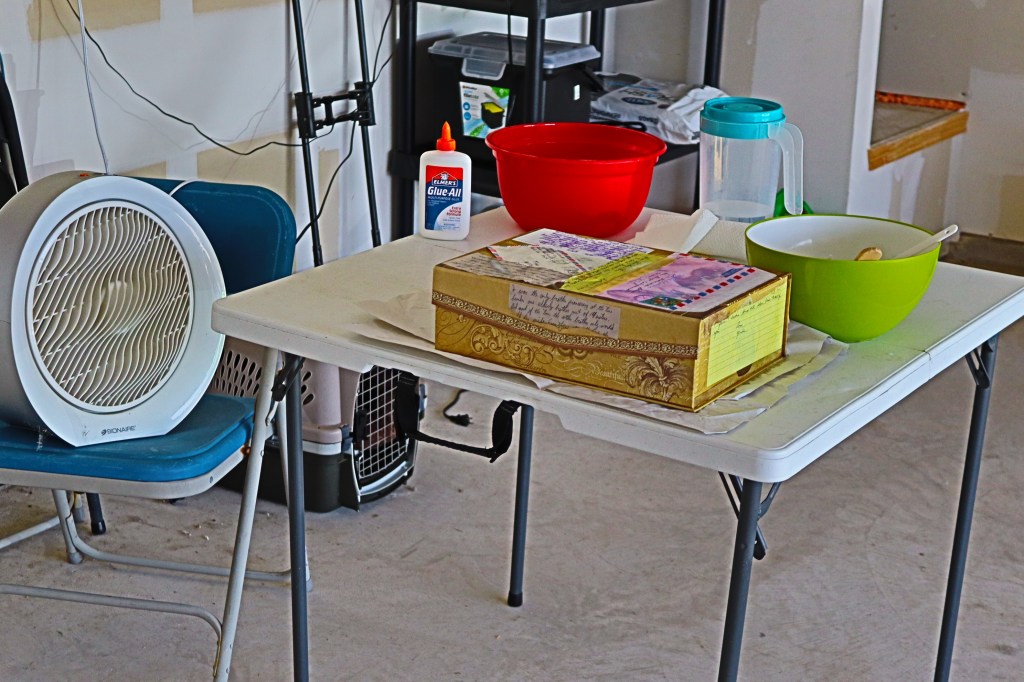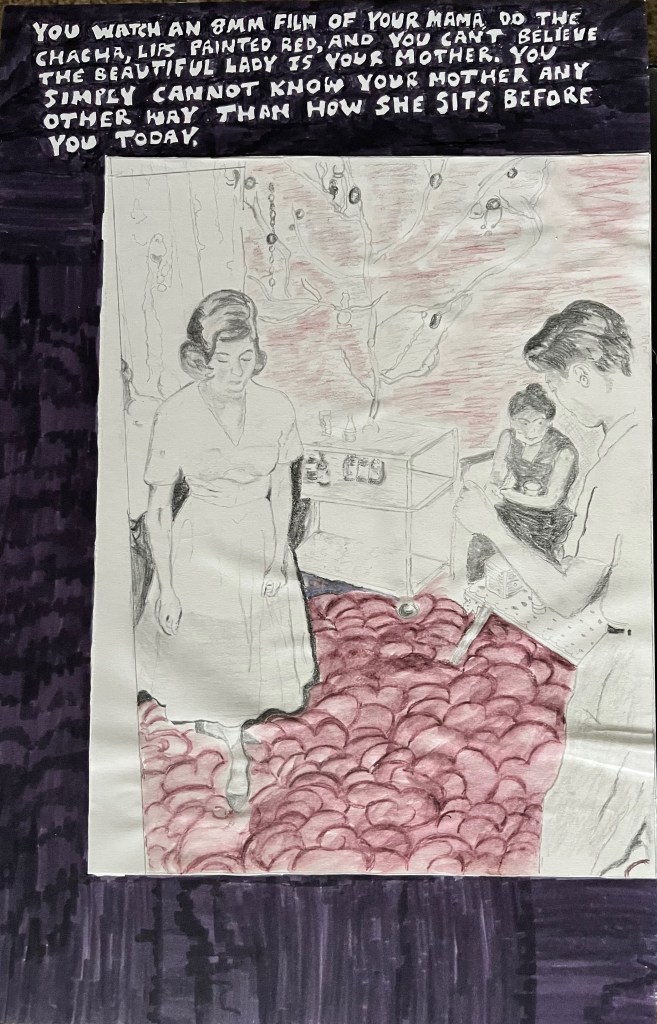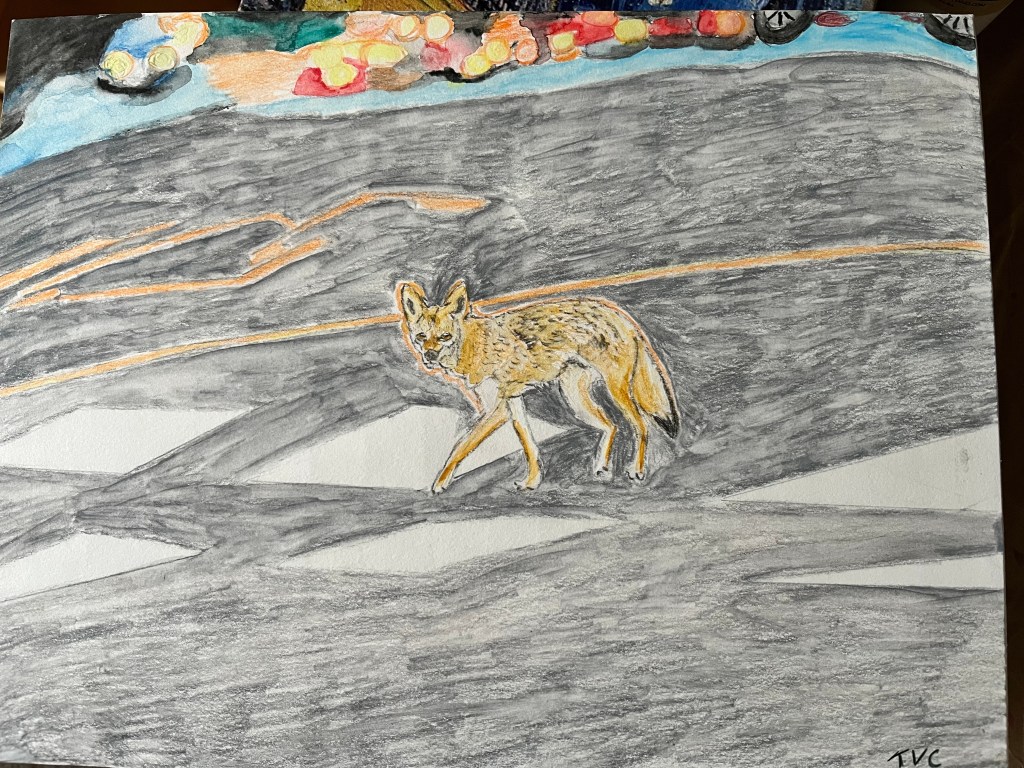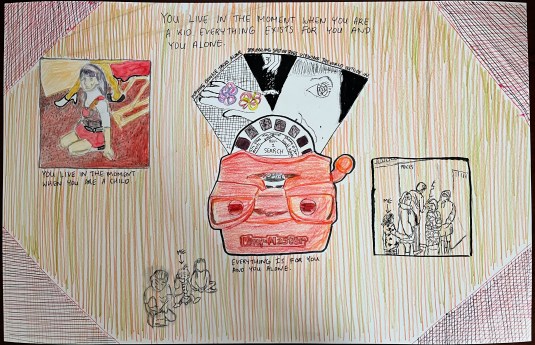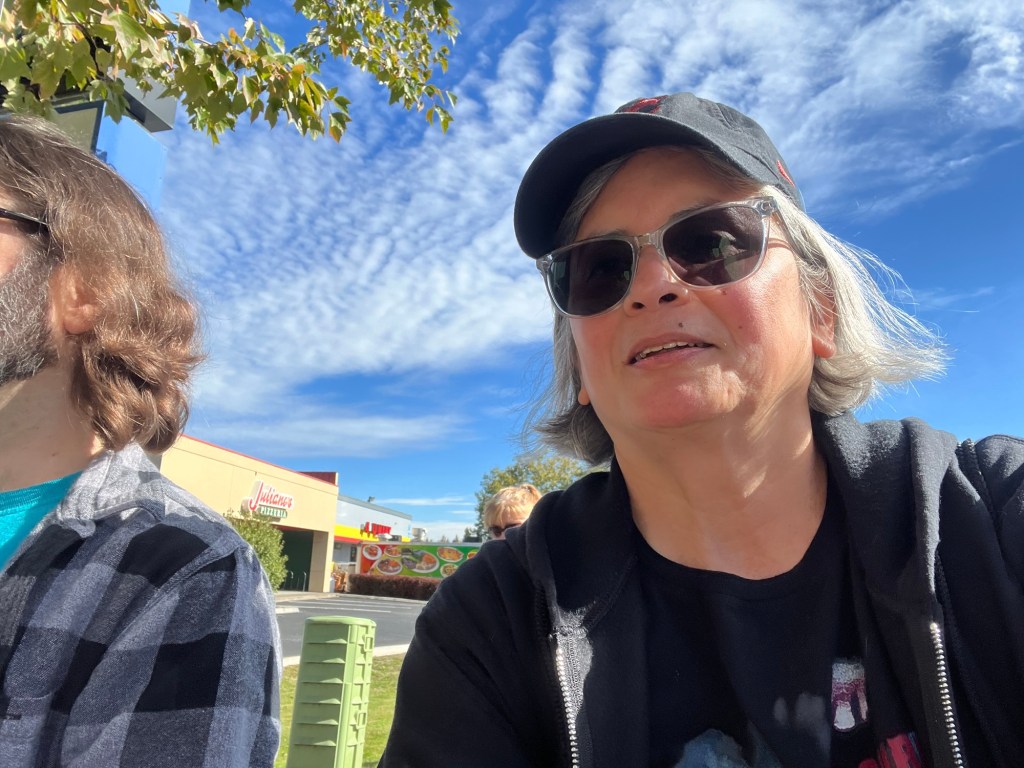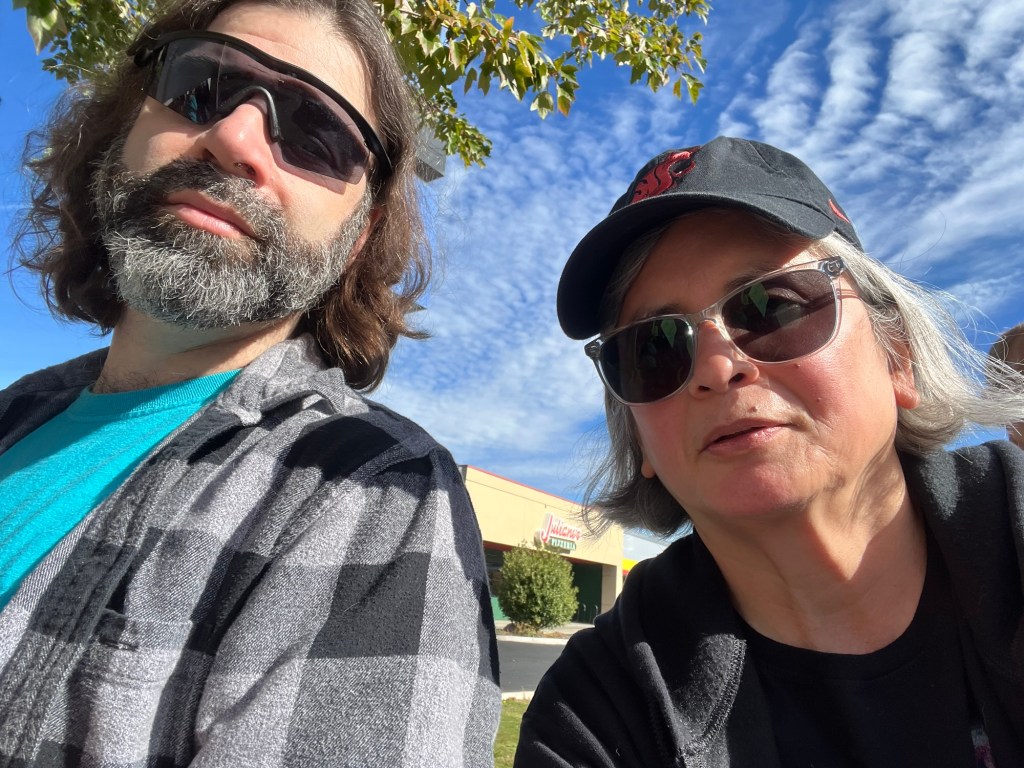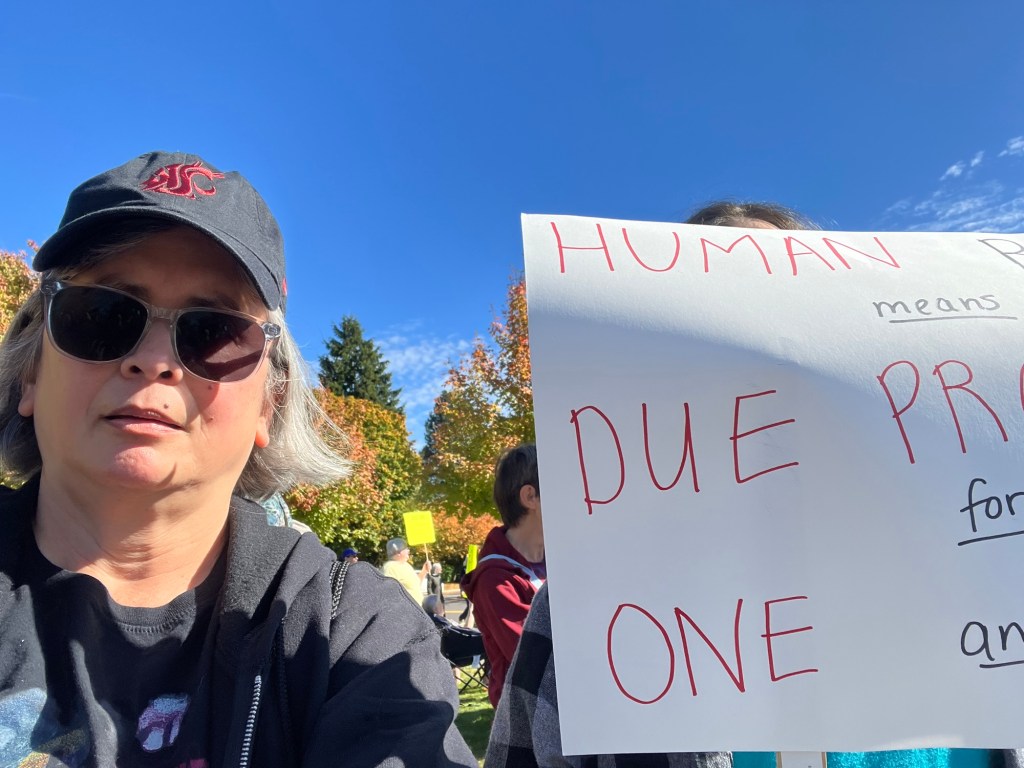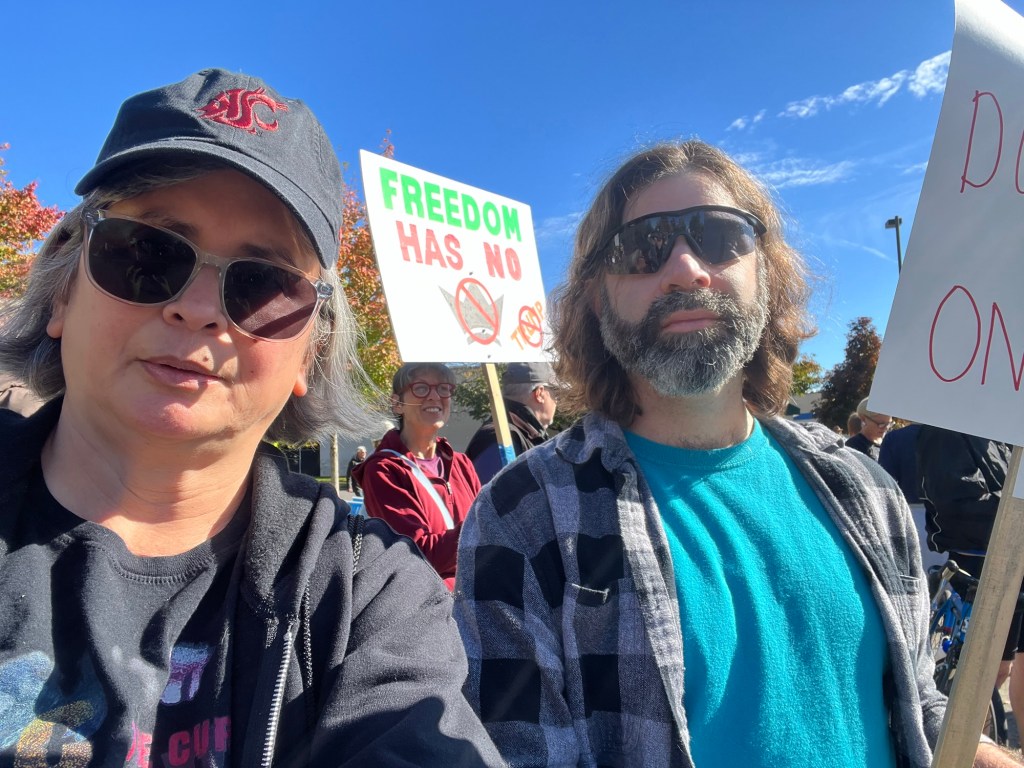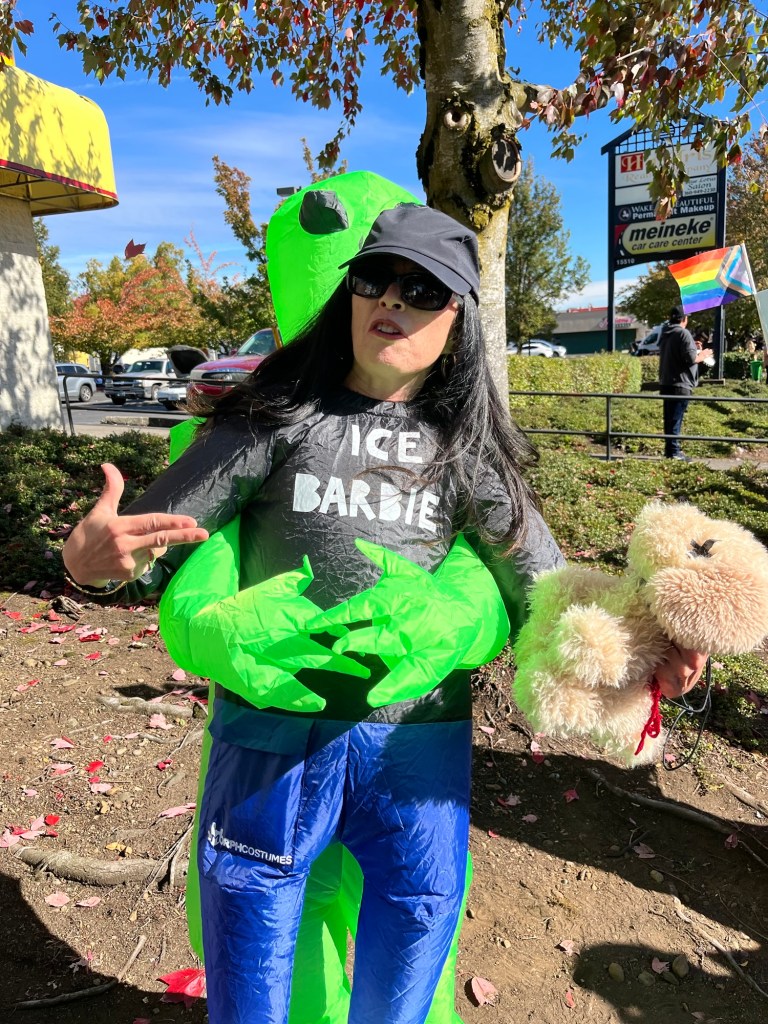It happened on Sunday, August 15th, in the Best Western Plus on Vancouver Mall Drive, at about 3:00 pm, after eating Vietnamese, the last night of motel before checking into our extended stay at AirBnB.
By nature (or upbringing--who can be certain), I am sensitive to paranoia and anxious thoughts, so it shouldn't be a big surprise that greedily ingesting two-and-a-half Cannabis edibles would create the perfect psychotic storm. I should have known better. I had a similar experience in San Diego, when I had returned home because of my father's passing in 2018. Ate one, nothing. Give it at least 30 minutes, my brother had warned, but impatient for feeling any effects, I ate another, laughed uncontrollably, lay on the couch in the living room, had only minimal paranoid feelings and fast went to sleep.
But the trip I had in our hotel room is the worst I've ever experienced, so much so that I never, ever want to do that again, is what I vowed when the effects finally wore off. It had only been a few hours, but believe me, it felt like infinity.
Before I describe my terrifying trip, I should backtrack and explain what I think amplified the effects. We had gotten on the road five days prior for our exodus from Texas to the PNW, so we were motel nomads, living out of our bags while caring for our four pets. For months, we had vacillated between the decision to stay in Texas, where our lives were relatively stable--both of us had stable, decent-paying jobs and a house we had purchased together four years ago--or to take advantage of the outrageous real estate market and move to a place more amenable to our political and social leanings, and our love of nature and the outdoors. Ultimately, we decided on the latter, which meant for me having to resign from my tenure-track assistant professorship at Temple College. Part of me was excited for the new adventure, where I could challenge myself and try a new career; I had been questioning whether I really wanted to continue teaching. I have various other interests I wished to explore, such as the pet industry or starting my own business. The other part quarreled with my adventurous spirit, asking What are you doing? You're so close to tenure (in 2023) and you make more money than you ever have. In the end, the itch for grand change won; all worked out smoothly in selling our house with a nice pay-off that would permit us to buy a nice house in Vancouver, which is still being built and won't be ready until October.
Simultaneously, during these rollercoaster months of getting ready for the move and applying to hundreds of jobs, I lost connection to my writing--I just didn't have the head space necessary. I did keep up with the Healthy Minds app, which offers guided mindfulness meditation. I did finish a short manuscript too, early on in the summer, In all My Lifetimes, a fictional meditation on the Buddhist concept of re-incarnation. If there is no self, as Buddhist thought claims, then what is reincarnated, was the big question in my mind. I'd like to think that I experienced brief moments of Nirvana, of ultimate awareness in the background of the waterfall of life, during my routine meditation sessions, and when I thought back to such moments, it felt exhilarating and frightening to think that all this life is is passing through, and what remains at death is a subtle mindstream that only vaguely remembers past lives.
It started with cry-laughing with tears and snot streaming down my face. We were both laughing for no obvious reason, staring at each other from time to time, then bursting out laughing repeatedly. Time slowed to an excruciatingly level; there were two time frames, overlapping, the one I was trapped in trying to keep up with the other where my husband and two dogs resided. I could hear him asking if I was okay, and the panting of my pacing dog as if it were happening right inside my head, yet far away; I could not move or reach out, they were so far away. He asked if I needed water, I nodded, he brought a jug to my lips and I sipped, but this did nothing to pull me out of the black hole I was sinking into. I needed to sleep, but when I closed my eyes, I felt certain I would die, so I lay unmoving on one of the twin beds, in a hellish in-between space, wondering when the suffering would end.
At one point, I thought of saying, Take me to the ER, where maybe they could save me, but then that would fuck everything up and we would lose our house and I would never recover, I would get my just desserts and anguish in purgatory. Then came the urge to vomit; I'm astonished I made it to the toilet instead of vomiting on the bed or the carpet. Crouched on my knees and while Ryan held my hair back and massaged my back, I lost just about all of the tasty smoked salmon vermicelli that had been my lunch. After returning to recline on the bed, there was a tinge of hope that I had thrown up the majority of the THC I had consumed. I even said, "I am me," pointing to my chest, and Ryan just smiled. You see, the trip split me from me; there is no self, I felt, then where will I go? What will I do? Fractured, I held onto whatever fragments of identity remained. I am me. Just when it felt I was coming to, awareness/self sank back down, down, down, I was losing it again. Altered senses, altered sense of time, impaired movements, incoherent thought. Ryan said he would take the dogs down, one by one. I wanted to help, but knew if I tried I would stumble down the stairs. So I lay frozen. He would later say he didn't know what was going on. Of course he couldn't. I was trapped inside, my amygdala over-stimulated I would later learn in researching the effects of too much THC, especially on those prone to anxiety. My stomach hurt again, and I didn't know if I would throw up or take a shit. It ended up the latter, and my dog Mei Mei followed me into the bathroom. When I petted her, I felt grounded, and I said, It will be okay. Petting something solid and real helped to anchor me again, but then afterward, when I stopped, I returned to the bad place.
At some point during my hallucinations, I messaged my brother, who lives in Korea, and here is a copy of the exchange:
"We're in a hotel. This is really bad. I don't like the feeling."
"Oh I'm sorry. Just relax, close your eyes, and listen to some soft music."
"Help me get back to reality."
"haha"
"I had too much, I feel sick"
"Drink lots of water, maybe eat something"
Moments later...
"I'm coming down. I threw up."
"Man I've never tripped so badly. I really thought I was dying."
There was a bit more, but you get the gist.
Did I really think I was dying, or afraid that what was happening was the real reality, and I wanted to return to the fake.
I believe that the stress of the previous months exacerbated my paranoid trip. I also believe that one of my greatest obsessions of late also was pushed to consciousness--the concept of self is a construct. Why couldn't I just go with it? Let go of self in my altered state? Isn't Nirvana or Awareness supposed to be freeing? Isn't ingesting marijuana supposed to be pleasurable? But no, I could not let go of the concept of self, even if it is an illusion. It is a necessary one until one is ready for the ultimate death of self.

